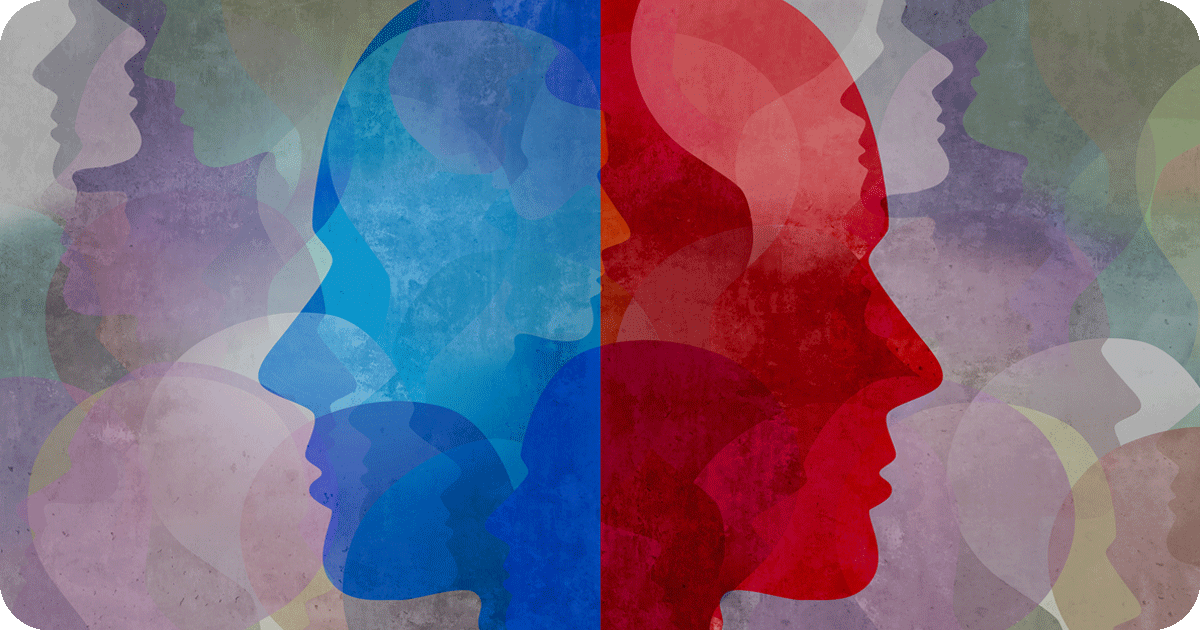Does emotional trauma lead to addiction and substance use? If you are someone who has a heightened sense of your emotions due to trauma, it may seem as if life is a desolate desert island beach that stretches on and on. Many times, people are able to find that rescue boat that brings them to safety as they cope with the undulating waves of life’s ups and downs. Unfortunately, it can be difficult to see the rainbow on the other side of the storm of trauma that looms just offshore. That perpetual feeling like nothing will ever change or improve can wash over you, and regardless of the support system you have, you may feel like you will simply never leave that island.
This is an all too common feeling in those who suffer from emotional trauma. Triggered by events in life that are sudden, painful, and cause you to feel helpless or unsafe, trauma can leave you with an array of emotions that can be overwhelming and difficult to process. The result can be persistent and devastating on a daily basis, and most trauma survivors will need professional assistance to address the symptoms of ongoing post-traumatic stress disorder (PTSD). Unfortunately, far too many leave trauma untreated and turn to self-medicating techniques like substance use.
If you’ve experienced emotional trauma, it is vital that you seek the help of professionals and the support of your loved ones. Self-medicating can lead to substance use disorder (SUD) and exacerbate existing mental health conditions that can make it more difficult to understand and process the trauma. Once substance use disorder takes hold, you’ll need the help of behavioral health experts in a professional, dual diagnosis trauma and SUD recovery program.
[colorsection bgcolor=”dkbluebg”]“The longer you allow the individual impacts of these diagnoses to go untreated, the more difficult recovery becomes. “[/colorsection]
Types of Trauma and Addiction
PTSD is most commonly associated with military veterans, but the initial trauma experienced can exist in many forms. No matter how trauma appears in your life, it can create an overwhelming emotional response that can stay with you and your loved ones for years to come. In some instances, a trauma that is experienced at a young age follows you well into adulthood before you are able to understand its full magnitude.
Some examples of trauma include:
- Physical violence
- Rape and sexual violence
- Physical, verbal, or emotional abuse
- Child neglect
- Housefires, motor vehicle accidents, and other traumatic incidents
- School bullying
- Domestic assault
- Military combat
- First responder line-of-duty incidents
- Earthquakes, tornados, hurricanes, and other natural disasters
While there are many other ways that trauma can manifest in your life, the commonality among all of them is their ability to leave an emotional seed that grows at an alarming rate. When the initial event occurred, the body reacted by releasing hormones like cortisol and adrenaline that are designed to stimulate the nervous system in moments of high stress. These hormones create the fight or flight response, which increases blood flow and heart rate, raises breathing rate, heightens awareness, and more. This occurs because the brain and body initially interpreted the trauma as physically or emotionally life-threatening and worked to provide the response needed to survive.
Unfortunately, some cases of trauma result in a perpetual loop that not only prevents you from processing what has happened but also causes that same physiological trauma response to recur every time you experience a trigger. This loop is commonly referred to as post-traumatic stress disorder (PTSD). As mentioned, this disorder is often associated with soldiers returning from war because they were the group most often repeatedly exposed to traumatic incidents that were difficult to overcome. PTSD is not, however, limited to war.
For example, childhood trauma or sexual assault can result in the same “fight or flight” hormonal response in those who experience it. Victims may later experience a constant traumatic response or have the response triggered by a particular situation, sight, smell, or sound. Because untreated trauma in the form of PTSD is an emotional loop, those who experience it may find day-to-day activities difficult to navigate and turn to substances such as drugs or alcohol as methods of coping.
What Are the Symptoms of Unresolved Emotional Trauma?

While everyone reacts to trauma in different ways, there are some symptoms that are strong indicators you or a loved one may need professional support.
Some of the physical, emotional, and psychological reactions to trauma include:
- Shock
- Confusion or difficulty concentrating
- Anger, increased irritability, or mood swings
- Anxiety, worry, or fear
- Feelings of guilt or self-blame
- Becoming withdrawn from others
- Feelings of sadness or hopelessness
- Feeling numb or disconnected
- Trouble sleeping or waking to nightmares
- Tiredness
- Being startled easily
- Difficulty concentrating
- Increased heart rate in times of nonphysical activity
- Noticeable agitation
- Aches and pains not associated with physical activity
- Muscle tension
When these symptoms begin negatively impacting your day-to-day life, work, family time, or self-care efforts, it is important to seek the help of a professional to work through the trauma. When left unaddressed, many people begin looking for ways to treat the trauma response on their own, which can lead to substance use disorder involving drugs or alcohol.
Is There A Link Between Trauma and Addiction to Substances?
The plasticity of the brain gives humans the unique ability to adapt and respond to any life experience, as the neurons react by either growing, changing, or breaking. This neuron reaction is led by what our brain determines should occur based on the experience and how it impacts our ability to function moving forward. The way the brain continuously rewires itself is what gives us the ability to learn new skills and make new memories.
The correlation between addiction and trauma is rooted in these neurological reactions. The plasticity of the brain not only enables you to hold on to the memories you have but also the feelings that are also associated with those memories. The brain essentially rewires itself to make associations with important memories (including those of traumatic events) and builds a response system to react similarly any time it believes you are experiencing the situation again. The more this rewiring occurs with repeated experiences, the more rooted the trauma becomes.
This rewiring essentially changes the brain structure, potentially creating problems with cognition and behavior. The brain then responds with the fight or flight response to the rewired information. This causes an increase in cortisol and adrenaline releases, which then creates obstacles in brain development, particularly in children. This response can become intolerable unless mitigated by therapy, medication, or coping mechanisms. Unfortunately, this often includes alcohol, illicit substances, or the misuse of prescription medications.
Is Trauma a Risk Factor For Addiction?
As brain function is impacted and the stress response becomes near-constant, many people who experience trauma turn to familiar forms of self-medication. If, for instance, a person is consistently exposed to another person with substance use disorder, they are more likely to use substances as a coping mechanism because that is what is familiar to them. This makes trauma a significant risk factor for addiction.
The brain’s plasticity and its susceptibility to triggers that remind you of a traumatic event have a significant impact on your likelihood of forming a substance abuse disorder. For this reason, if you have experienced trauma, it is crucial to seek the support of loved ones and the help of behavioral health experts. Allowing trauma and PTSD to go untreated can make you significantly more likely to experience a substance use disorder.
What Role Does Trauma Play in Addiction?
As discussed, the likelihood of developing a substance abuse disorder after experiencing trauma significantly increases. However, understanding why the addiction develops can also be helpful in understanding how to overcome it.
Because of the impact trauma has on the brain, those who seek substances to cope are seeking a way to fight the psychological impacts of what they have experienced. The use of alcohol and other drugs has been shown to change how a person feels. These substances often produce pleasure, which distracts from negative feelings. Substances like alcohol, benzodiazepines, opioids, and cannabis products all seek to slow the central nervous system by producing calming sensations that reduce the effects of trauma, such as anxiety.
On the surface, this seems to be a solution to the effects of trauma. However, substances simply mask the emotional pain associated with the experience. Because these products are only able to temporarily numb the feelings, they allow them to stay within the brain rather than creating a new neural path to cope with the trauma and help the person create healthier ways to respond to it. Often, those who develop substance abuse as the result of trauma become disengaged from life and can seem emotionless.
Worse, the numbness caused by substances like alcohol and benzodiazepines can lead to the desire to increase the use of other substances such as cocaine, amphetamines, synthetics, and nicotine to provide alertness and energy. Thus, the temporary relief numbness provided from the trauma is an unhealthy coping mechanism because it creates a complex cycle of addiction that is difficult to escape from.
How Does Alcohol Affect PTSD?
PTSD is the resulting effect of an experience with trauma. When PTSD is accompanied by a substance abuse disorder, there are significant challenges that arise and prevent individuals from healing emotionally.
Unfortunately, many with PTSD turn to substance use as a way to cope with the symptoms of PTSD, which may include:
- Agitation
- Hypersensitivity, particularly to sudden movement or loud noises
- Depression
- Socially withdrawn
- Insomnia
Alcohol, as mentioned, can help to temporarily calm agitation and hypersensitivity and may help to induce sleep. Perhaps that’s why nearly 40% of people with child trauma resulting in PTSD misuse alcohol. However, it also contributes to depression and remaining socially withdrawn. The temporary relief provided by alcohol not only worsens other symptoms of PTSD but also only serves as a temporary solution for relieving anxiety.
In this way, many individuals who use alcohol to cope with PTSD become dependent on the substance to address some symptoms and then experience withdrawals and depression when they attempt to stop using alcohol. Alcohol can also prevent you from confronting either the addictive behavior or the trauma itself because the mind is not clear or focused on the healing process.
How Does Trauma Therapy Work?

Psychotherapy consists of many different sub-classifications, one of which is trauma therapy. This specialized form of therapy seeks to help those who have experienced trauma understand how it has manifested in their lives as well as how it impacts their sense of safety and security. Through trauma therapy, you will seek to create a holistic view of your life, including how trauma may have impacted your substance use, your friends, and your family. Only then can you understand your PTSD and the underlying conditions associated with the disorder.
Experiencing trauma can be devastating, and many people seek to avoid reliving it. They may see participating in trauma therapy as having to do just that. However, trauma therapy is not to force you to relive what happened but to rewire your brain’s emotional connections to the event. Then, you can address any adverse impacts on your life after the event, such as the development of a substance abuse disorder.
The prevailing belief about therapy is that it is a place to go for solutions to your problems. If it were that simple, nobody would need therapists because we’d have all the answers already. So, it is important to understand that the purpose of therapy is not about solutions but about discovery. Through the therapy process, a therapist is a skilled individual who can help guide you through the adverse moments of your life.
When you share your thoughts, your words, and your actions regarding your trauma with a therapist, they are able to help you make sense of what happened and begin to process it. The goal of each interaction is to help return you to a happier and mentally healthier you.
Supporting Substance Abuse Disorders Caused by Trauma
If you are not the person who has experienced trauma but have a loved one who is suffering from a substance abuse disorder as a response to trauma, your support is crucial.
If you want to be as supportive as possible, it is important to remember a few keys.
Be Patient and Understanding
Everyone who experiences trauma responds differently. Because healing takes time, recognizing an individual’s need for time and support needs to come on their terms in a way that works best for them. However, it is important to monitor for signs of self-medicating and other unhealthy coping mechanisms that could exacerbate the traumatic response.
Offer Practical Support
Help assist in day-to-day activities such as buying groceries or helping around the house, especially immediately after the traumatic event. Creating a “normal” environment can help with establishing healthy routines and familiarity. However, be cautious about enabling behaviors associated with substance abuse disorder.
Be Available
Don’t pressure them to talk. Simply remind them that it’s ok not to talk but that the support is there when they are ready. This can help keep the focus on the love and support they have around them.
Help Them Socialize and Relax
Encourage physical activity, friendships, and participation in hobbies. These can bring genuine happiness to anyone and can help create a positive environment that feels safe and comfortable.
Don’t Take Their Symptoms Personally
Sometimes the outward emotions a person who experiences trauma may display can seem directed at the people around them. The wide range of emotions that can be added by a substance use disorder can seem doubly devastating to those who are close to them. It is important to recognize that these are a symptom of addiction and/or trauma, and they are not your fault. A key tenet of 12-step meetings applies here—you did not cause the SUD or trauma, you cannot control its symptoms, and you cannot cure it. All you can do is provide support without enabling.
Dual Diagnosis Treatment Addresses Trauma and Addiction

On their own, emotional trauma and substance abuse disorders can be significantly difficult to confront and treat. They each contribute to that feeling of being on an island, lost and often hopeless. Dual diagnosis addresses the trauma and addiction.The longer you allow the individual impacts of these diagnoses to go untreated, the more difficult recovery becomes. The change in the brain’s wiring creates an increased dependency on the effects of a substance to address unresolved trauma.

